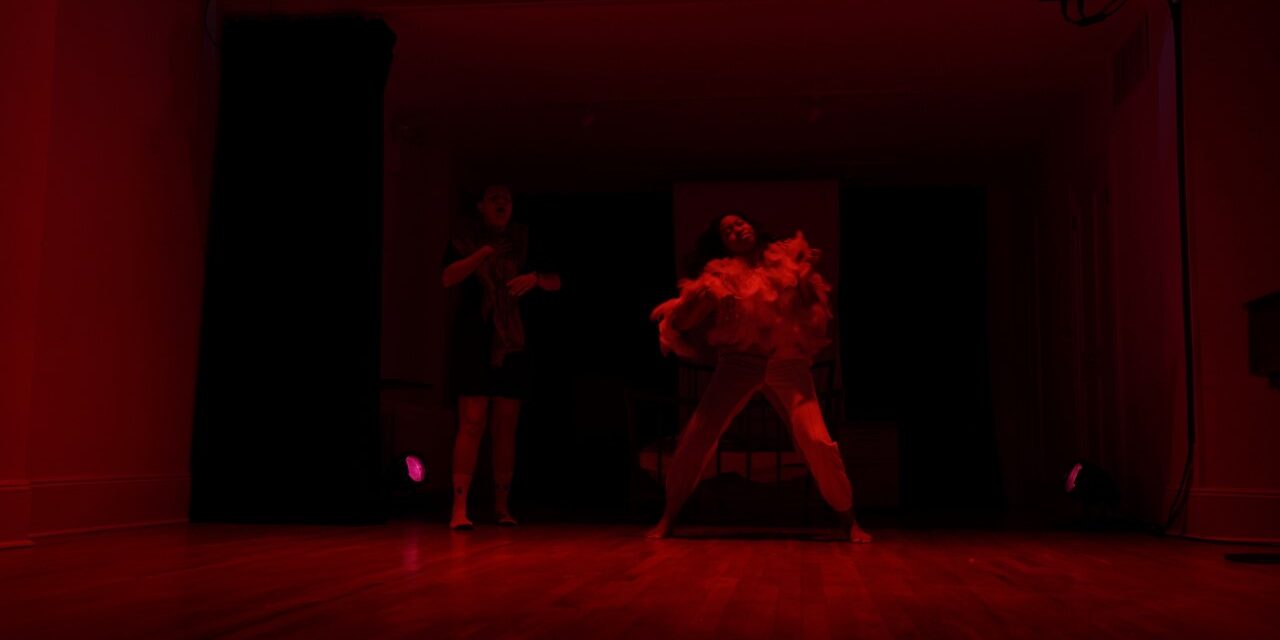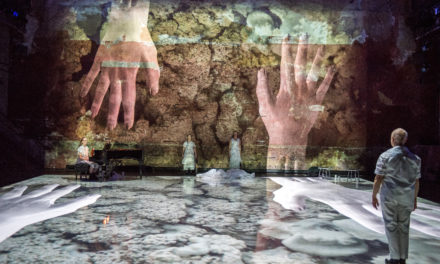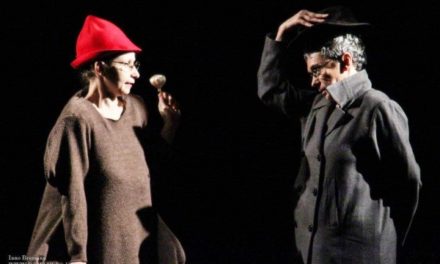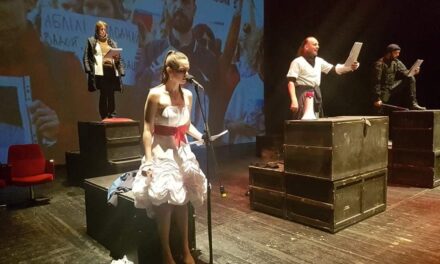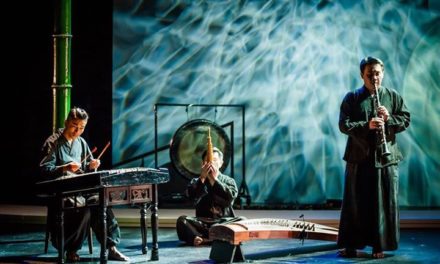For anyone wondering if live theater offers nothing but escapism from our mini-plague—or worse—on the nose woke-ism, last weekend’s Science in Theater festival proved a stunning demonstration of worlds colliding to provocative and enlightening effect. The festival brings together artists and scientists in collaboration to create original pieces, then realized in front of those very scientists. Post-play panels brought both worlds together for a rarely-if-ever seen display that was something between an artistic Q&A, medical research conference, and global town hall.
Eden by playwright Wi-Moro Nyoka, tells a fantastical version of the real-life research of Dr. Polona Safaric Tepes. Directed by Ana Margineanu, the unfussy and refreshingly natural performances of Gaia Visnar and Rachel Leighson as two female scientists on a race to understand and treat a progressive mystery disease, Eden achieved a style that was both approachable and more than once remarked on by the scientists on the post-show panel as “realistic.” “You really captured our obsession to find the truth,” remarked one of the night’s resident doctors. The parallels between artist and scientist didn’t stop there – these two usually separate communities blended beautifully to reveal a natural affinity between these two “types:” curious, idealistic, determined to show the truth, with an experimental approach that takes failure as a prerequisite for eventual unguaranteed success.
Eden a young female patient played mostly through primal movement and powerful silence by Monica Joelle, was Dr. Tepes’ real-life patient, one who spurred her to bound into rare pediatric cancer research that often goes underfunded for a variety of reasons that were illuminated by the panel. “If you get cancer at 80 years old, you have 300 viable treatments. If you get pediatric cancer, you have 3 treatments.” Additionally, the gender biases present in the scientific research field also mirrored those present in the theater world: female scientists receive on average $40,000 less than their male colleagues for first-time grants, and the lack of female role models and mentors can lead to sidelined careers. In the end, the message rang clear – in life and death and in art- the best idea should win, no matter who it comes from.
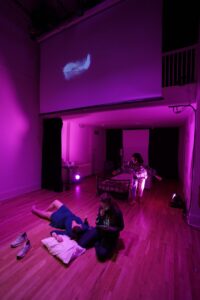
Patient Eden (Monica Joelle, top) continues her mysterious medical transformation while scientists Dr. Luna del Cielo (Leighson, reclining) and her colleague (Visnar) buries herself in research. Photo by Casey Moreno.
One particular success of Nyoka’s play is that while it sheds light on the above issues, it does so with respect for the personal human aspect. The characters serve the play and the fantasy elements are elevated beyond the literal scientific aspect to point to greater mysteries than may be attempted by every science – such as: What is death? What is transformation? The nuance Nyoka manages so deftly coexists easily alongside the projected images of mutating cells and talk of male-dominant zoom meetings, achieving a singular space where, for a moment, art and science make more of each other than each one alone.
One wonders what would happen if more theater delved into worlds seemingly common with the earnestness and humility of asking the actual people in those fields to participate. As a former Wall Street-er, the feeble attempts of recent theater (and film) to depict the 2008 financial crisis as it actually happened are a distinct example of artists failing to respect their subject by not bothering to get to know it from the people who live it. The Science in Theater festival, and Eden in particular, make me hopeful that reductive renderings may be entirely disposed of when the artist has the invitation to paint from life itself. I will definitely be attending the next one.
This post was written by the author in their personal capacity.The opinions expressed in this article are the author’s own and do not reflect the view of The Theatre Times, their staff or collaborators.
This post was written by Fareeda Pyracha Ahmed.
The views expressed here belong to the author and do not necessarily reflect our views and opinions.

